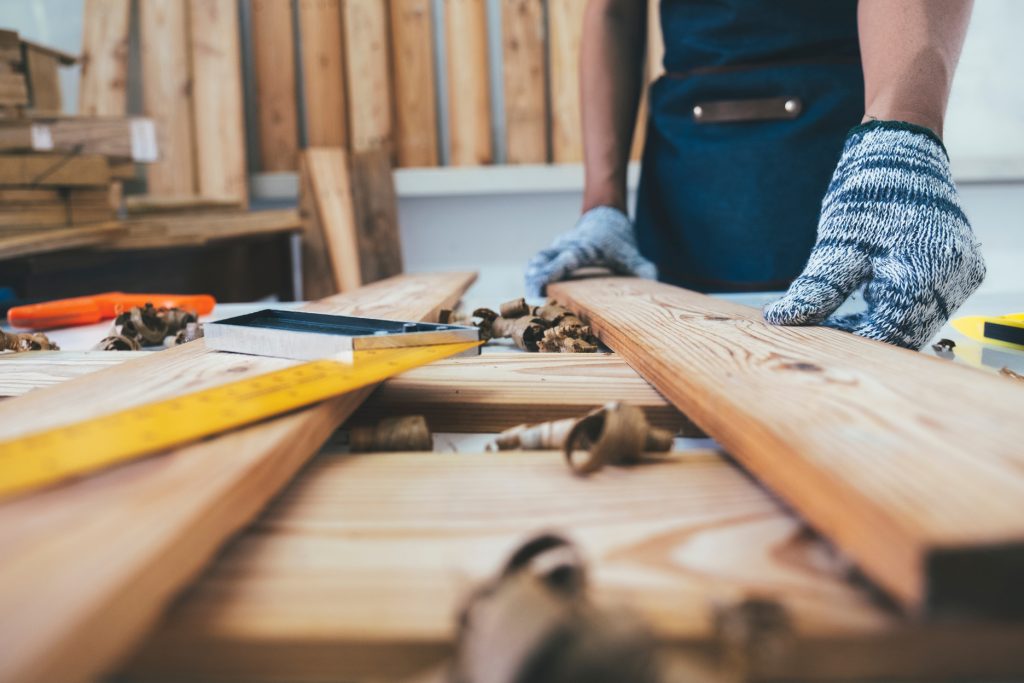Picture this: you’ve spent so much time – weeks, months, or maybe even years searching for your dream home. The moment you walked through the front door, you knew it was the one. It’s checked all your boxes, you’ve even mentally started placing your furniture, and decided what every room will be used for. Everything seems perfect… until the home inspection report is sent to you– and it’s full of surprises. Does this sound familiar? Welcome to the adventure of home buying! But don’t worry, because in this blog, we’re going to show you how to handle those unexpected surprises. It’s time to discover what to do when your home inspection reveals problems with your house.
Don’t Panic, You’re Not Alone
You’ve just received the home inspection report, and it’s not quite what you were expecting. You might be thinking, “can this house still be my dream home?” The truth is, you’re not alone in experiencing this situation. Even the most attractive homes can have their ‘issues.’ Remember, every house has a story to tell, and sometimes that story includes a few unexpected plot twists.
Numerous homebuyers experience this situation. They open that report with anticipation, only to discover a whole list of issues and needed repairs. The good news is that they got through it, and so will you. You’re now part of a group of homeowners who have faced these challenges and have come out the other side unscathed.
So, take a deep breath, grab some coffee, and let’s dive into what you can do once you receive your home’s inspection report. Your house may just need a little TLC to truly become the home you imagined.
Consult Your Inspector
You’re reading your home inspection report, and it’s like a coded message. The cracked foundation, strange electric panel, and the confusing plumbing issues—what in the world do they mean? Before your imagination runs wild with visions of your dream home collapsing, it’s time to consult your knowledgeable sidekick in this adventure: your home inspector.
Your home inspector isn’t a bearer of bad news; they’re your key to understanding the different problems found in your potential home. They’re the Sherlock Holmes of real estate, and they’ve found your homes’ secrets, and left them in that report for you to solve.
When you contact your inspector, they can decode the report to help you distinguish what the minor worries are and what the major red flags are. They’ll provide you with valuable insights into the importance of each issue, and if it’s something that can be fixed.
Don’t be afraid to ask questions, and seek clarification. Your Home Inspector is there to provide an unbiased opinion on the house. This is your opportunity to gather all the information you need to make the best decision regarding your potential home.
Prioritize Your Problems
Now that you’ve consulted your home inspector, you’re equipped with a deeper understanding of the issues that need attention. But how do you tackle this list of issues? The key is to prioritize.
One thing that you might find helpful is creating a “Fix Now” list and a “Fix Later” list. Start by identifying the issues that are crucial for your safety and the structural integrity of the house. These could include things like major electrical problems, a leaking roof, or significant plumbing issues. These are your top priorities and should be focused on ASAP.
On the flip side, there might be cosmetic damage or other minor issues that aren’t urgent but are still something to keep in mind. These could be things like scuffed walls, outdated fixtures, or the need for a fresh coat of paint. These items can go on your “Fix Later” list, to be tackled when you have the time, budget, or energy.

It’s important to keep in mind that not every issue is a major concern, and not every issue needs to be fixed immediately. Prioritizing helps you focus your resources on what truly matters and helps you not get overwhelmed.
Prioritizing your problems will make the process more achievable and allow you to address the most critical concerns first, while still leaving room for the fun and creative projects that will make your house feel like home.
Negotiate with the Seller
Now that you’ve identified your home’s issues, it’s time to put your negotiation hat on. The home inspection report isn’t just a list of problems; it’s also a valuable negotiating tool. While it’s important to remember that no home is perfect, it’s equally as important to make sure you get a fair deal.
Talk with the seller. Respect their viewpoint though; after all, they’ve likely cherished the home and may not have been aware of its secrets. Approach the negotiation with the goal of finding a solution where you both win. Don’t be afraid to lean on your agent, and discuss your concerns and some of the things that need to be fixed or updated.
While negotiation can be a difficult process, it’s a vital step in the home buying process, and now you have an extra tool. Remember, the seller might be just as motivated as you are to close the deal, and they may even be willing to make reasonable accommodations. With effective negotiation, you can turn those inspection surprises into a useful tool. Don’t be scared of this valuable phase in the home-buying adventure.
Seek Professional Advice
You’ve consulted with your home inspector, prioritized your issues, and have started to negotiate with the seller. What now? It’s time to bring in the experts.
While your home inspector is your trusty sidekick in uncovering the issues of your potential home, they probably aren’t allowed to fix them. That’s why you should consult a qualified professional. Whether it’s a foundation issue, a plumbing complication, or electrical concern, It’s important to keep in mind that not every issue is a major concern, and not every issue needs to be fixed immediately. Prioritizing helps you focus your resources on what truly matters and helps you not get overwhelmed. Prioritizing your problems will make the process more achievable and allow you to address the most critical concerns first, while still leaving room for the fun and creative projects that will make your house feel like home.it’s essential to hire professionals equipped with expertise in the concerns you are addressing.

Start by seeking recommendations from your home inspector, friends and family, or your real estate agent for reliable contractors. Get multiple quotes to ensure you’re getting a fair deal. You can also look online at their reviews and ratings to help you make the best possible choice for your needs. By hiring qualified individuals, you will make sure that each issue is addressed properly, and reduce the risk of costly repairs in the future, giving you peace of mind.
DIY or Hire It Out?
Now that you’ve consulted the professionals, you face the question: Should you take on some of these repairs yourself, or not?
When deciding if you should Do It Yourself (DIY), there are several things to consider. First, your own skills and experience. Are you an experienced DIY expert with a set of skills to rival Bob the Builder, or do you struggle to hang a picture straight? Be honest with yourself.

What is the task? What could go wrong? Have you done it before? Some jobs, like changing a light fixture or painting a room, might be well within your DIY capabilities. However, handling major electrical, plumbing, or structural issues might require a professional to make sure it’s up to code and improves overall safety.
Budget is another critical factor. DIY projects can save you money, but they can also lead to costly mistakes if you’re in over your head. Will you really save money? What if the project goes south? These are some the questions you should consider.
Enjoy the Journey
Dealing with the surprises that may come up in your home inspection can make you lose sight of what started you on this adventure – the excitement of becoming a homeowner.
Homeownership is not just about having a perfect house; it’s about creating a perfect home, one that reflects who you are, and each home tells a story. So, enjoy every moment. These are the experiences that will create lasting memories and make your house a place filled with laughter, love, and stories to tell.
Conclusion
In summary, here are the key takeaways:
- Don't Panic, You're Not Alone: Every home has it’s secrets, and you're not alone in facing these surprises.
- Consult Your Inspector: Your home inspector is your sidekick in understanding these secrets and which ones should be your main concern.
- Prioritize Your Problems: Organize your repair tasks by importance and budget restrictions.
- Negotiate with the Seller: Don't be scared of negotiation; it's your chance to find a win-win solution.
- Seek Professional Advice: Consult professionals for expert guidance.
- DIY or Hire It Out? Know your limits and choose between doing it yourself or hiring experts.
- Enjoy the Journey: Embrace the surprises as part of your unique homeownership adventure.



